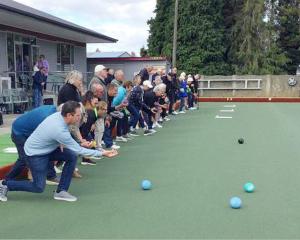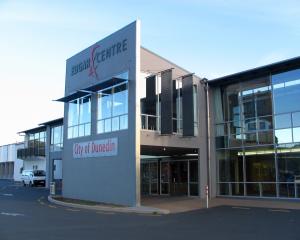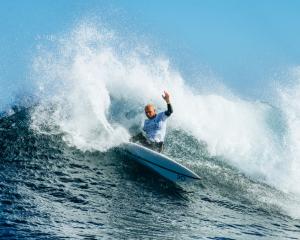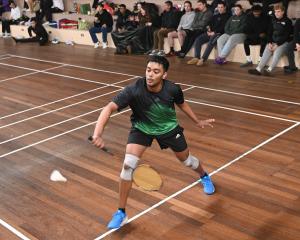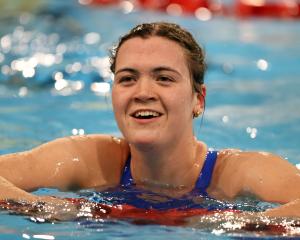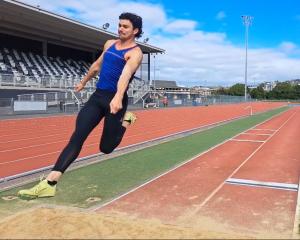''It is a disadvantage to work in a gym that is not of a similar standard when you compete against the big clubs in Auckland and Christchurch,'' he said.
''This place must get very cold in the winter and it makes it more difficult for Dunedin gymnasts to compete on level terms.''
Weinstock (60), who recently retired as a gymnastics coach with the Sandwell Education Authority in England, has trained gymnasts in Bulgaria where it is much colder than Dunedin.
''Outside is bitterly cold,'' he said. ''But they are geared up for it and everything inside is warm.''
Weinstock, who coached or managed English gymnastics teams at five Commonwealth Games, worked with Dunedin gymnasts and coaches during his three-day clinic in Dunedin last weekend.
''It would be better if they had a facility that gave them a chance to work at a higher level,'' he said. Dunedin gymnasts train in basic conditions in the upstairs of two old warehouse buildings and at the old Caledonian Gymnasium.
''It would be better for the sport if they had a building that was warmer and easier to keep clean,'' Weinstock said.
''There are also health and safety issues.''
Dunedin Gymnastics Academy coach Carmel Leslie said: ''We have a full house of 300 and a waiting list. We have more kids wanting to be involved in gym sports to learn the fundamental movements but we are limited by space.''
Weinstock said the needs of trampolining, aerobics and rhythmical gymnastics were different and he did not think one big building to embrace all the disciplines was necessary.
The Dunedin Gymnastics Academy would like to be involved with the tertiary institutions so students could learn in our environment how to coach children in fundamental movements, Leslie said. Other sports like to use the facilities to develop their own sports.
''There is a multisport use there,'' Leslie said.
''We have the expertise to offer stretching and jump training.''
Former All Black prop Kees Meeuws did gymnastics when he was young.
''Gymnastics can help whatever sport you want to do,'' Weinstock said.
''It improves co-ordination and is the springboard to many other sports.
''It is important to teach gymnastics in schools because it underpins all other physical activity. They are useful skills for all sports,'' Weinstock said. In the United Kingdom, school children do gymnastics, games, dance and athletics. This physical activities programme gives them the basic skills they can adapt to other sports.
The fundamental movements taught in gymnastics in the United Kingdom are locomotion, landing and jumping, rolling, twisting, taking weight on hands, and receiving and sending in rhythmical gymnastics.
Gymnastics brings more than just the physical benefits.
''There are lots of social skills. Children learn to be part of the group and be nice to each other. They rally round to help someone who is scared,'' he said.
''Children who are arrogant or big-headed get knocked down a bit.''
The sport is also linked to good study techniques.
''In gymnastics we do 30 minutes on the bars, 30 minutes on the beam, 30 minutes on vaulting,'' he said.
''When they understand this principle they get the work ethic and can transfer that skill to studying and apply it when they do homework.''


